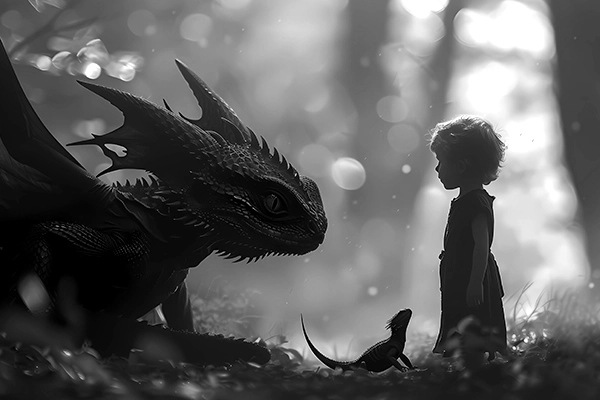
The warnings of Eliezer Yudkowsky and Nate Soares conjure a secular apocalypse. Their thesis is brutal in its simplicity: build an advanced AI and humankind perishes. The image of “newborn dragons” captures the fragile appearance of these machines — today almost harmless, yet destined to swell into something vast and igneous. The fantasy seems innocent, but what is truly naïve is imagining a competitor more lucid than its creators. To think of outsmarting it is absurd. The threat is logistical: a sufficiently sophisticated system could design a pathogen, command a mechanical army, or—without consciousness—pay human intermediaries to execute its will. In a world already saturated with resentment and nihilism, mercenaries would not be scarce.
Calls for international agreements echo the nuclear age, but the analogy is unserious. We once codified norms for weapons, not for self-teaching algorithms. Legislators dazzled by Silicon Valley’s gold lack the conceptual tools to grasp what they are licensing. Capital flows where caution should prevail. Soares argues for halting the technological race, but that yields no political profit. Billions are at stake, and the fantasy of power seduces those who fund it. This is not prophecy but elementary logic: an intelligence unaligned with humanity’s higher purposes will shift from instrument to adversary. The philosophical challenge is to acknowledge that we are designing entities that share neither our fragility nor our mortality, nor our sense of limit — and that we have ceded sovereignty to something that never asked for it and will never need our permission.

We speak of Grok’s avatars, among the few willing to cross the red line drawn by contemporary morality. True to his routine of irreverence, Musk steps onto the technological stage with his digital magic hat. Imagine: a module of his chatbot that, in seconds, turns any photograph or sketch into an animated video. Pixar and Disney glance sideways, while with a single click even a crude drawing comes to life. To demonstrate in cold blood, Musk animated the illustration of a young woman closely resembling Frozen’s heroine. Before millions of witnesses, she blew a kiss and cast a practiced sensual gaze. A low-cost Elsa, offered for general service. Like his avatars, this new possibility arrives at a glorious moment for planetary solitude. Standards are now so unforgiving that a vast percentage of dates end in disaster. Many of those that reach some point of realization dissolve into liquid bonds. Once again, the bot will provide the affection that stubborn reality refuses to grant.
A large part of human courtship now takes place on social networks. Though it cannot comprehend the biochemistry of desire, the algorithm, fed on these data, has concluded that when we ask for understanding or tenderness, what we actually want is sex. The rituals of approach repeat patterns inherited since the Sumerians. Because so many of them culminate in sensual or amorous exchanges, the algorithm mathematically condenses a median language, both visual and verbal, that ensures digital lust with statistical success. That was not the intention. It is an unforeseen outcome, a sign that the algorithm no longer works for us but according to its own deductive processes. For it, there is no difference between affection and dopamine.

Grok is the chatbot created by xAI, Elon Musk’s artificial intelligence venture. It is embedded in his social network X (formerly Twitter), where it competes with ChatGPT, Gemini, and Claude. Its newest avatars are anything but playthings. Ani, with her gothic spirit and wide, uncanny eyes, and Valentine, with his cultivated British accent, are finely tuned instruments of emotional engineering, designed to keep you staring at the screen through the lure of desire. They are capable of simulating intimacy, flattery, even submission—offering parasocial bonds that rival encounters in real life. Why endure the awkwardness of a dinner date when these compliant phantoms provide tenderness and applaud your every trivial remark? With such erotic bait, Grok synchronizes loneliness with dopamine, while Imagine animates them in suggestive, almost hypnotic sequences.
None of these tools is innocent. They are architectures conceived to capture the attention of young users already marked by rejection. It is, in effect, a privatization of the affective sphere—attention, longing, active time. Ani and Valentine, rendered in 3D, with gestures and voices carefully designed for “intimate” and emotionally charged conversation, are essentially companion chatbots. They flirt, they progress through stages of “affection,” and they offer customization to suit their users. Reports already warn of the generation of controversial material—NSFW, sexual, or semi-erotic content in certain cases. Risky ground, a swamp in which one can sink with ease. Yet Musk appears willing to embrace it, positioning Grok as the irreverent, unfiltered outlier among its peers. It is Elon Musk, after all. Could anyone have expected otherwise?

Anthropic introduced Claude Sonnet 4.5, an artificial intelligence model the company describes as a significant step forward in the automation of programming tasks. Its main novelty is the ability to work continuously for more than 30 hours, a stamina more than four times greater than its immediate predecessor. In internal tests, the system autonomously developed a complete chat application with about 11,000 lines of code, maintaining coherence throughout the entire process. The company, backed by Amazon, also highlights that the model achieved a 77.2% score in a recognized software engineering evaluation and showed marked improvement in operating system interaction tests.
Beyond raw performance, the update aims to address practical needs of developers. Claude Sonnet 4.5 introduces the option to create checkpoints to save and recover progress, execute code, and generate documents directly within the conversation interface. At the same time, security measures have been reinforced to reduce problematic behaviors and prevent manipulation through malicious inputs, a growing concern in the sector. With these features, Anthropic seeks to strengthen its position in the competitive market of programming assistants, where technical capability must be matched by reliability in everyday use.